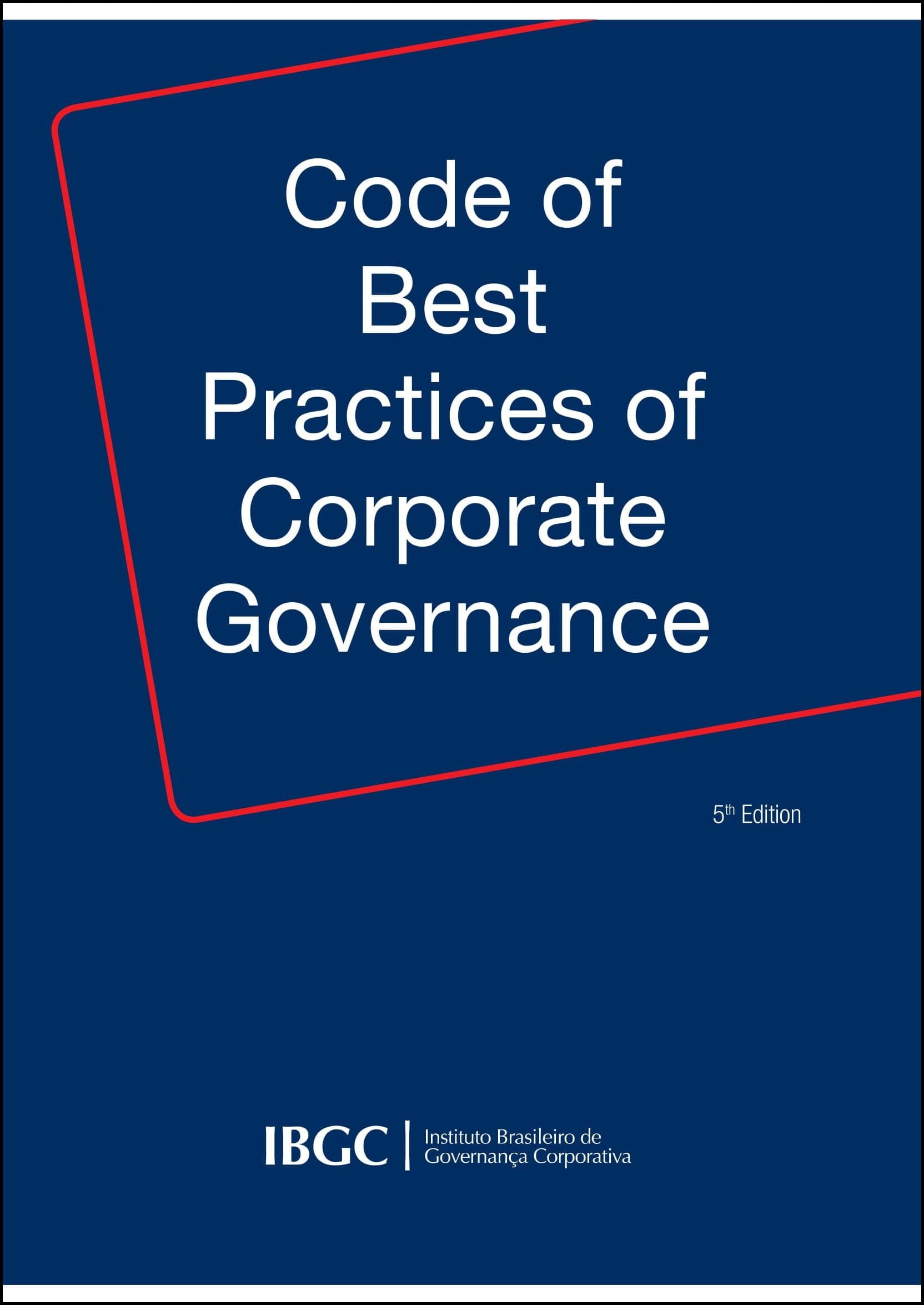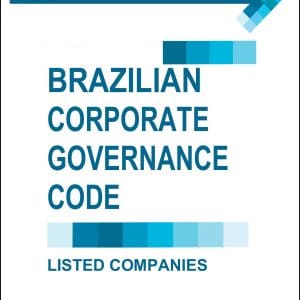Brazil – Brazilian Institute of Corporate Governance (IBGC)
Code of Best Practices of Corporate Governance – 5th Edition – 2015.
Covering:
Foreword
I – Premise of the Code
II – Definition of Corporate Governance
III – Basic Principles of Corporate Governance
- Shareholders
- “One Share, One Vote” concept
- By-laws / Articles of Incorporation
- Anti-takeover mechanisms (poison pills)
- Meditation and arbitration
- Shareholders agreements
- General meeting
- Calling and conducting the general meeting
- Agenda and documentation
- Proxy statement
- Shareholders’ proposals
- Questions in advance from shareholders
- Nomination of board and fiscal council members
- Rules for voting and shareholder register
- Proxy voting
- Conflict of interest at the general meeting
- Transfer of control
- Sale of control
- Acquisition
- Administration’s decision and opinion on public tender offers for acquisition of control
- Liquidity of securities
- Dividend policy
- Family council
- Board of Directors
- Duties
- Composition of the board of directors
- Selection
- Qualifications of board members
- Number of members
- Independence of board members
- Categories of board members
- Role of independent directors in potential conflict situations in the absence of separation between the chief executive officer and chairman of the board
- Term of office
- Time availability
- Chairman of the board
- Absence of the chairman of the board
- Segregation of duties between the chairman of the board and the chief executive officer
- Alternate board members
- Evaluation of the board and of its members
- Approach and scope
- Evaluation of the CEO and of executive management
- Succession planning
- Introduction of new members
- Continuing education of members
- Board interlocking
- Compensation of board members
- Budget of the board and external consulting
- Advisory board
- Internal regulation
- Committees of the board of directors
- Composition of the committees
- Qualifications and commitment
- Audit committee
- Governance secretariat
- Board of directors’ meetings
- Schedule and agendas
- Material and preparation for meetings
- Dynamics of the meetings
- Behavioural aspects
- Guests to board meetings
- Executive sessions
- Preparation and disclosure of minutes
- Confidentiality
- Board of directors’ relationships
- Relationship with shareholders and stakeholders
- Relationship with the chief executive officer and subordinates
- Relationship with independent auditors
- Relationship with the fiscal council
- Executive Management
- Duties
- Nomination of executive management members
- Relationship with stakeholders
- Transparency
- Communications policy and periodic reports
- Role of the executive management in the code of conduct
- Evaluation of the executive management
- Access to facilities, information and files
- Supervisory and Control Bodies
- Audit committee
- Relationship with the board of directors, the chief executive officer, and executive management
- Relationship with independent auditors
- Relationship with subsidiaries, affiliates and third parties
- Fiscal council
- Composition
- Work agenda
- Fiscal council statements
- Fiscal council relationships
- Relationship with shareholders
- Relationship with the audit committee
- Relationship with independent auditors
- Relationship with internal auditors
- Compensation of the fiscal council
- Independent auditors
- Relationship with the board of directors and/or the audit committee
- Independence
- Non-audit services
- Report on the financial statements and recommendations from the independent auditors
- Internal auditors
- Risk management, internal controls and compliance
- Audit committee
- Conduct and Conflict of Interest
- Code of conduct
- Reporting channel
- Conduct committee
- Conflict of interest
- Related party transactions
- Use of insider information
- Stock trading policy
- Information disclosure policy
- Contributions and donations policy
- Prevention and detection of illicit acts policy



Reviews
There are no reviews yet.